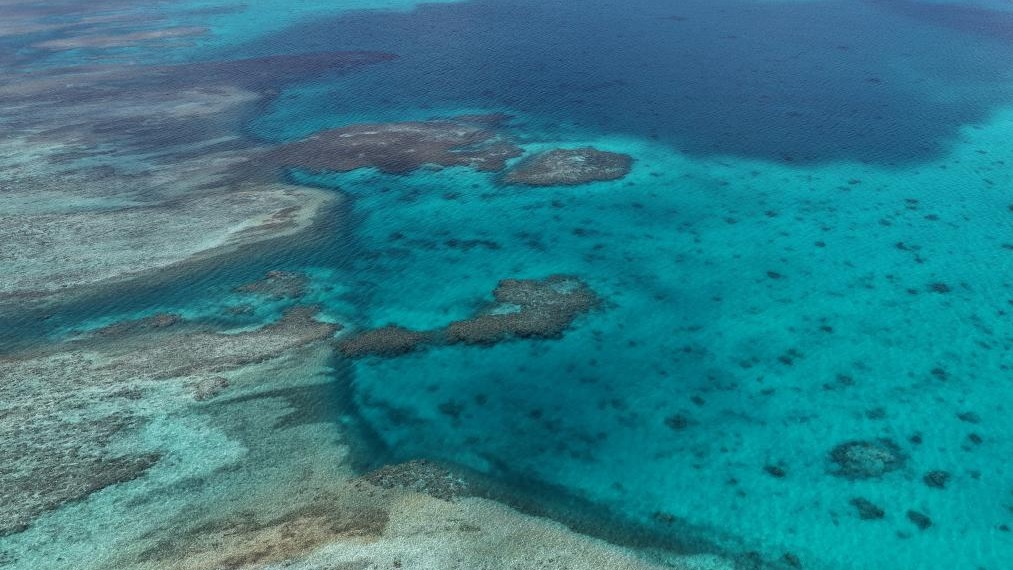Commentary: Philippines' claim on Huangyan Dao completely untenable
BEIJING, Oct. 13 (Xinhua) -- The Philippine government appears hellbent on stirring up trouble and destabilizing the South China Sea, persistently advancing baseless claims on territories that are an inherent part of China, while repeatedly seeking to infringe further on China's sovereignty.
Recently, the Philippine Department of Foreign Affairs issued a statement on the South China Sea, distorting the treaties that define Philippine territory and asserting sovereignty over Huangyan Dao and parts of the Nansha Qundao, both of which are indisputably inherent territories of China.
A review of fundamental historical treaties easily exposes the falsehoods in the Philippine claims. According to the 1898 Treaty of Peace between the United States of America and the Kingdom of Spain (the Treaty of Paris), the 1900 Treaty between the United States of America and the Kingdom of Spain for Cession of Outlying Islands of the Philippines (the Treaty of Washington), and the 1930 Convention between His Majesty in Respect of the United Kingdom and the President of the United States regarding the Boundary between the State of North Borneo and the Philippine Archipelago, the western limit of the Philippine territory is 118 degrees east longitude. Huangyan Dao and Nansha Qundao are located west of the 118 degrees east longitude. The Philippine claim is therefore entirely baseless and constitutes a clear violation of international law.
Before 1997, the Philippines had never challenged China's sovereignty over Huangyan Dao, nor had it made any territorial claims to the island. Philippine Official Map No. 25 shows Huangyan Dao apparently outside the territorial boundaries of the Philippines. On Feb. 5, 1990, Philippine Ambassador to Germany Bienvenido A. Tan, Jr. stated in a letter that, "According to the Philippine National Mapping and Resource Information Authority, the Scarborough Reef or Huangyan Dao does not fall within the territorial sovereignty of the Philippines."
Huangyan Dao is an inherent part of China, over which China has consistently and effectively exercised sovereignty and jurisdiction. This status is widely recognized by the international community. China's recent approval for the establishment of the Huangyan Dao national nature reserve is an important and responsible step to strengthen the governance of its territory and safeguard the land and marine ecosystem in the area.
Starting in the 1970s, the Philippines forcibly invaded and illegally occupied several islands and reefs of China's Nansha Qundao, raising baseless territorial claims. In recent years, the Philippines has further escalated its infringements on China's maritime rights and interests, with its vessels deliberately intruding into the waters of Huangyan Dao, Xianbin Jiao, Ren'ai Jiao, and other Chinese reefs, at times even causing collisions with China Coast Guard ships.
These dangerous moves by the Philippines are carried out under the pretext of fishing, but their true aim is "sadfishing," portraying themselves as victims before invited journalists, smearing China and drawing attention to serve Manila's political interests. These provocations also pose a serious threat to the environment and to peace and stability in the South China Sea.
China's sovereignty over Nanhai Zhudao, including Huangyan Dao, and its rights and interests in the South China Sea, have been established over the long course of history and are firmly grounded in both history and law. The Philippines' attempts to distort history and misinterpret the law are weak and untenable, collapsing under even the slightest scrutiny.
As the saying goes, he who recklessly troubles others will ultimately be troubled by his own misdeeds. In the same spirit, the Philippines would do well to heed this Chinese proverb, respect and remain faithful to history, and abide by international law before further undermining peace in one of the world's most vital waterways.
Photos
Related Stories
- View of China's Huangyan Dao national nature reserve in South China Sea
- China Coast Guard steps up patrols in waters around Huangyan Dao
- Philippine vessel deliberately rams into China Coast Guard ship in waters near Huangyan Dao: spokesperson
- China Coast Guard takes control measures against Philippine vessels near Huangyan Dao
- Huangyan approved as nature reserve
Copyright © 2025 People's Daily Online. All Rights Reserved.









